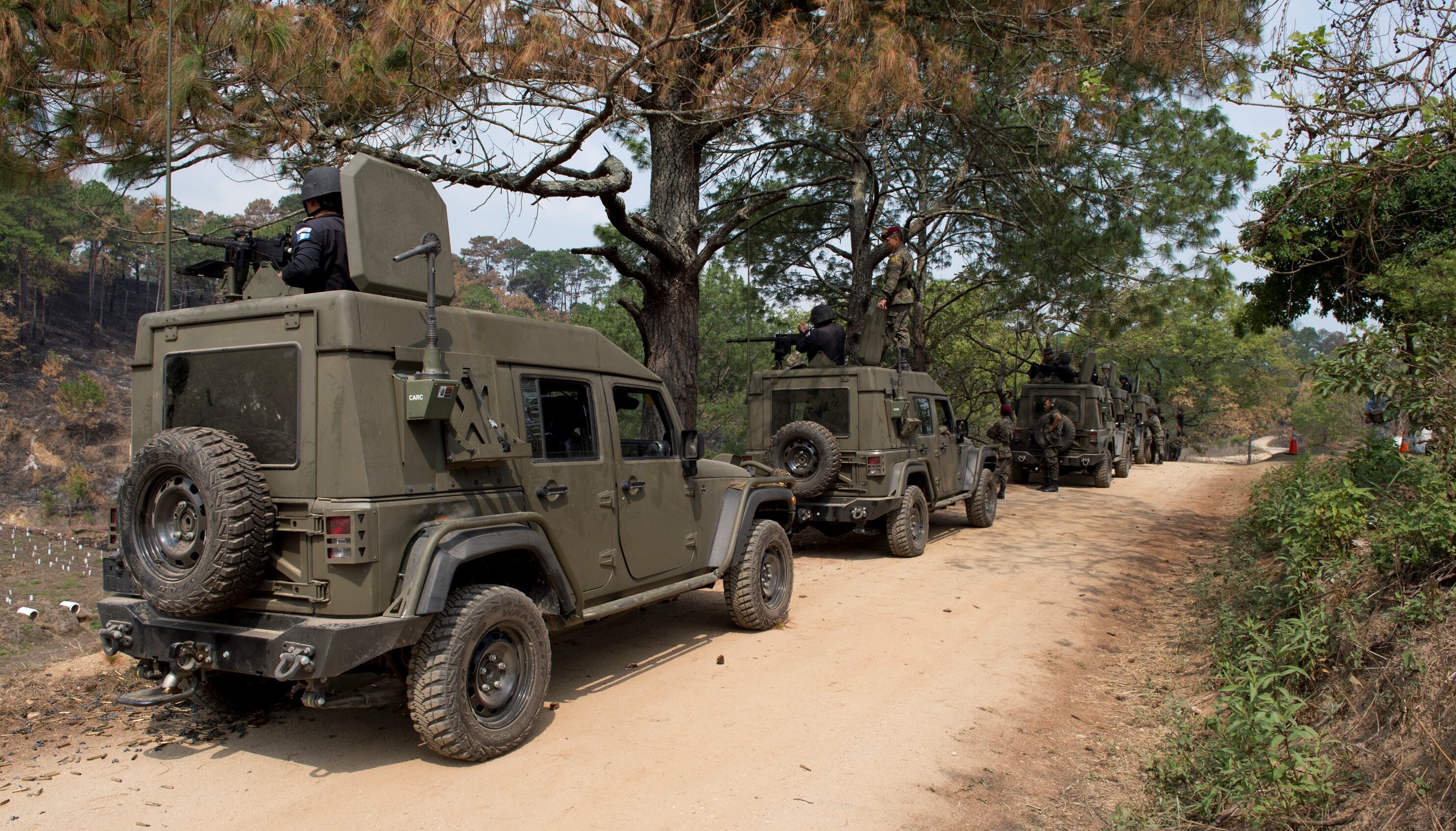American military equipment was allegedly misused in Guatemala, and the United States government does not have policies in place to address the situation, a recent government watchdog report said.
A U.S. Government Accountability Office report published Wednesday found that from Aug. 2018 to Oct. 2021, Jeeps that were provided by the Department of Defense were abused in the Central American country and even used to intimidate U.S. embassy officials.
The Pentagon and State Department initially recorded only one allegation of misuse in Guatemala in 2018. However, a review by the GAO found that the agencies examined at least five allegations.
“DoD does not have policies to investigate alleged misuse for equipment provided under certain authorities, and may not be addressing allegations of misuse effectively,” the report said.
The news comes only weeks after the U.S. embassy in Guatemala announced it received a donation of $4.4 million in American military equipment, according to an embassy news release. Models like the Toyota Hilux, Toyota Land Cruiser and Suzuki ATV were among the 95 vehicles included.
Between 2013 and 2018, the U.S. sent Guatemala 220 Jeeps to combat crime in the country, the GAO report said. Additionally, from 2017 to 2021, the Pentagon provided the Northern Triangle countries of Central America — Guatemala, El Salvador and Honduras — with more than $66 million in security assistance and equipment.
Concern over equipment misuse in Guatemala was sparked in Aug. 2018, when seven DoD-provided Jeeps were allegedly used to intimidate officials at the U.S. embassy. A pattern of alleged misuse unfolded over the next three years in at least four other incidents, including times when Jeeps were used to intimidate protestors.
The Pentagon signed an agreement in 2018, after the first two allegations of misuse occurred, to send 38 additional Jeeps worth almost $3 million to a Guatemalan interagency task force, the GAO report said. Although that transfer was later halted, in Sept. 2021 the DoD made plans to instead send them to Guatemala’s army. For now, they remain in storage.
Officials also asked the Guatemalan government to reassign the task force’s remaining Jeeps to its military, but while the transfer was agreed to it has not taken place as of July.
Separately, DoD and State Department officials told the GAO they did not investigate any allegations of misuse of DOD-provided equipment in either Honduras or El Salvador between 2017 and 2021, despite a 2018 report by the Miami Herald that Honduran military police “used U.S.-made rifles to injure and kill civilians.”
Although DoD has long used a program to check that equipment it provides globally is being used appropriately by foreign nations, the GAO uncovered that the Pentagon was not maintaining accurate data on which equipment needed to be monitored.
DoD officials reportedly told the GAO that the program is not designed to verify how recipients use equipment, simply whether they have maintained ownership of it.
“Because it has not designed its program to identify potential misuse, DOD may lack reasonable assurance that recipients are using equipment for authorized purposes only,” the report said.
According to officials, the Jeeps were not subject to the program. Even if the vehicles were, officials said their response would not have differed.
“I am appalled by today’s GAO report, which provides unequivocal evidence that the Guatemalan government grossly misused military Jeeps provided by the United States on multiple occasions, including using them to intimidate American embassy officials,” Rep. Norma Torres (D-Calif), a Guatemala-born lawmaker, said in a statement.
The GAO report concluded with five recommendations to the Pentagon and State Department, including that they improve policies for recording misuse allegations and that the Pentagon improve its policies to maintain accurate equipment data.
Although the State Department agreed with the advice, DoD disagreed with two of the recommendations, saying its current guidance is sufficient.
Jonathan is a staff writer and editor of the Early Bird Brief newsletter for Military Times. Follow him on Twitter @lehrfeld_media





